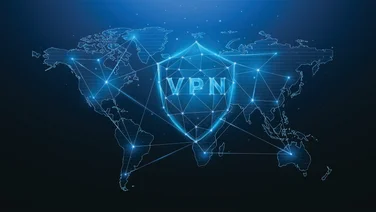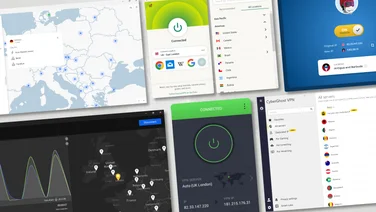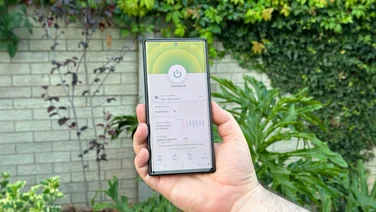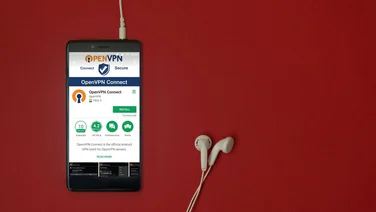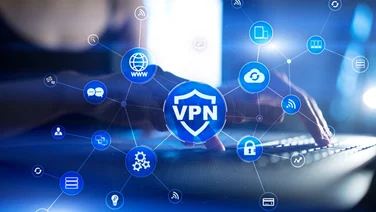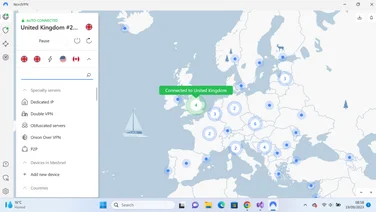To help us provide you with free impartial advice, we may earn a commission if you buy through links on our site. Learn more

Just as some will tell you that a smartphone doesn’t need security software, so some will tell you that your smartphone doesn’t need a VPN. Yet you can argue that VPNs are just as useful for smartphones as they are for laptops or PCs, and that there are situations where, by not using one, you could be putting your privacy and security at risk.
It’s pretty straightforward when you think about it. You’ve got your smartphone with you 24 hours a day, and you could end up using it in places where you’d never take a laptop or PC. There’s a lot of sensitive information on it, and you may often use it on public Wi-Fi networks which pose significant security risks.
If you’re even considering using a VPN as a solution to strengthen security and privacy on your PC, then you should be thinking about it for your smartphone too, and smartphone VPNs are just as easy to use and affordable as PC VPNs – if not more so. Even better, you can get both for the same monthly or annual subscription, often for under £4/month.
READ NEXT: Best VPN services 2020
Need more convincing? Here are four good reasons why your smartphone needs a VPN.
1. Stay safe on public Wi-Fi networks
Whenever you connect to a public Wi-Fi network you’re opening yourself up to a variety of security risks. You could end up hooking up to a rogue Wi-Fi network designed to harvest valuable data, or have data intercepted by snooping or man-in-the-middle attacks, where hackers connecting to the same network intercept data in transit between you and the hotspot. Anything from your login credentials to personal and business information could be stolen.
Using a VPN protects you against this by creating a secure, encrypted connection between your device and the VPN server passing through the public Wi-Fi network. Therefore, you can rest easy and connect to any public Wi-Fi network with confidence because the VPN will shield all your data from falling into the wrong hands.

2. Cover your browsing tracks
ISPs now routinely track and log your online activity and the UK’s Investigatory Powers Act of 2016 lets them retain such logs for up to a year. What’s more, social networks, advertising companies and online stores invest millions of dollars to track the sites you visit and the content that you look at in order to build more realistic profiles and process or sell your data (though some may have to aggregate it and anonymise it to meet data protection legislation).
By using a VPN, you can hide what you’re up to from your ISP and from any other snoopers out there. Not only can you rely on the secure encrypted connection to cover your tracks, but a VPN obscures some of the information – like your IP address, timezone and location – that these sites and services use to identify you, even when you have the dreaded cookies turned off.
READ NEXT: How to protect your online privacy
3. Bypass censorship
You might live in a country with a relatively high level of internet freedom, but what if you travel abroad only to find yourself unable to access Facebook, Twitter and other social networks, and unable to search using standard search engines or without seeing filtered results.
A VPN lets you select your exit node or gateway in a completely different country, thereby letting you bypass these state-controlled firewalls and restrictions, giving you uncensored and unblocked internet access.
5. Access geo-blocked content
We’re watching more and more streaming video on our smartphones – something that’s helping to drive sales of unlimited data tariffs. However, some streaming services offer more content in other countries. For example, Netflix US has a wider range of TV programmes and more recent movies than Netflix UK.
Many reputed streaming services won’t stream to devices that are outside its home country even if you have a valid account and active subscription. Try streaming programmes on BBC iPlayer while you’re on holiday outside the UK and you’ll see how annoying this can be.
Luckily, a VPN can break down these geo-blocks by making it look as if you’re connecting from the US (in the case of Netflix) or the UK (in the case of iPlayer) so that you can watch the shows and movies that would otherwise be out of bounds. You need a VPN with decent performance, particularly for a transatlantic link, but this is where the fastest services, like ExpressVPN, really shine through.

